Nothing, they say is more certain than death, and nothing more uncertain than the time of dying
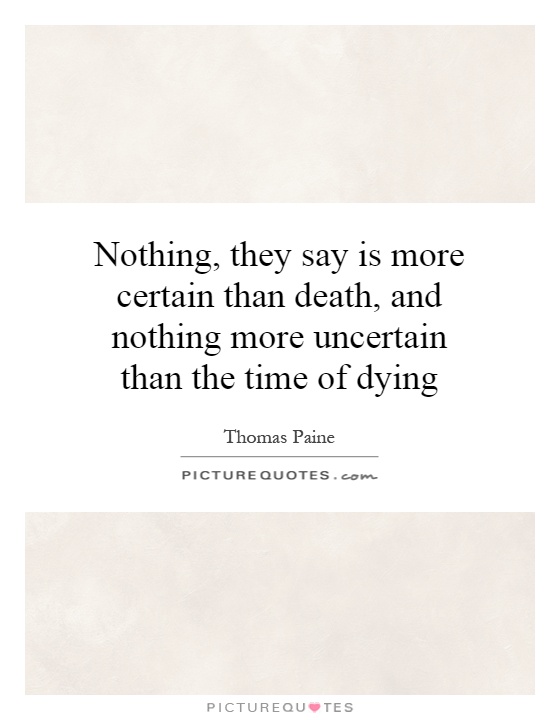
Nothing, they say is more certain than death, and nothing more uncertain than the time of dying
Thomas Paine, a prominent figure in the American Revolution and a key advocate for independence from British rule, was no stranger to the concept of death. Throughout his life, Paine faced numerous challenges and obstacles, yet he remained steadfast in his beliefs and convictions until his dying breath. The quote, "Nothing, they say is more certain than death, and nothing more uncertain than the time of dying," perfectly encapsulates Paine's understanding of the fragility of life and the inevitability of death.Paine's own experiences with death were profound and deeply personal. He witnessed the horrors of war firsthand, serving as a soldier in the Continental Army during the American Revolution. Paine saw his comrades fall in battle, and he himself narrowly escaped death on several occasions. These experiences undoubtedly shaped his views on mortality and the fleeting nature of life.
Despite the uncertainty of when death would come for him, Paine remained resolute in his commitment to the cause of liberty and freedom. He penned influential pamphlets such as "Common Sense" and "The American Crisis," which galvanized support for the revolutionary cause and inspired countless individuals to join the fight for independence. Paine's words were powerful and persuasive, and his unwavering dedication to the principles of democracy and equality made him a formidable force in the struggle for independence.
As Paine grew older, he continued to champion causes that he believed in, even in the face of adversity and criticism. He was a vocal advocate for social justice and the rights of the common man, and he never wavered in his commitment to fighting for what he believed was right. Paine's fearless pursuit of truth and justice made him a target for those who sought to silence him, yet he remained undaunted in the face of opposition.

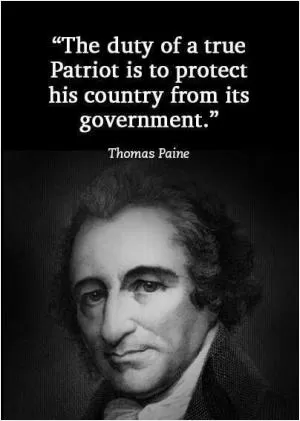

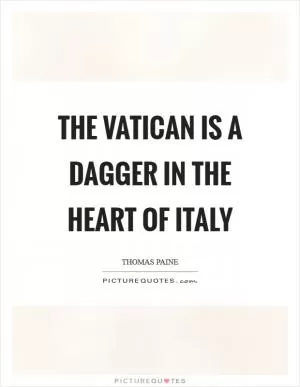



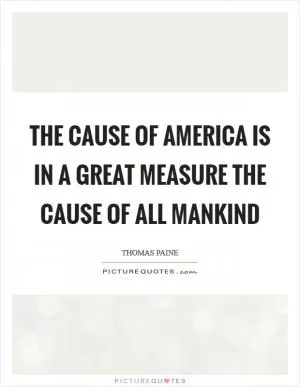
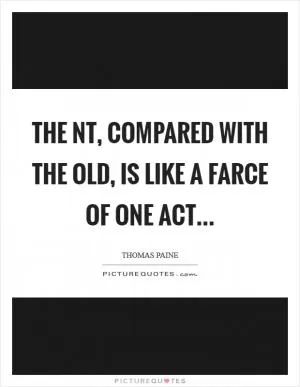

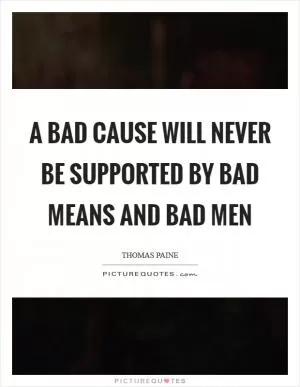

 Friendship Quotes
Friendship Quotes Love Quotes
Love Quotes Life Quotes
Life Quotes Funny Quotes
Funny Quotes Motivational Quotes
Motivational Quotes Inspirational Quotes
Inspirational Quotes